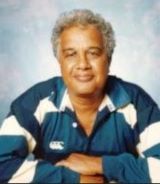UNMASKING THE EMPIRE in British Ceylon: The Post 1915 Riots Campaign-by Michael Roberts

Source:Thuppahis
Image Source:Thuppahis
Unmasking the Empire: The campaign for justice following the 1915 Pogrom and the collaboration of British Christian humanitarians at the beginning of Sri Lanka’s struggle for Independence, …. Prabodith Mihindukulasuriya
Social Scientists’ Association, No. 380/86, Sarana Road, Colombo 7, Sri Lanka, 2023, 312 pp, ISBN: 978-955-0762-47-7,
Printers: Karunaratne & Sons (Pvt) Ltd., 65 C, Thalgahawila Road, Midellamulahena, Horana, Sri Lanka.
DB Jayatilaka
CONTENTS
Abbreviations vi
Notes on Terminology vii
Preface ix
Acknowledgements xii
Part I: Introduction
Chapter One: British Christian Humanitarianism, the Ceylonese Temperance Movement, and Imperial Governance 3
Chapter Two: One Hundred Days: The 1915 Pogrom and Martial Law Reprisals (May–August 1915) 15
Part II: The Campaign for Justice in Britain (1915–1919)
Chapter Three: Phase I: Battle for Credibility (July 1915–August 1916) 41
Chapter Four: Phase II: Battle for Due Process (September 1916 – October 1917) ……………………. 67
Chapter Five: Phase III: Renewed Appeal and Turn to Constitutional Reform (October 1917 – November 1919) …………………. 81
Part III: Unmasking the Empire
Chapter Six: Unmasking Colonial Governmentality ………………… 97
Chapter Seven: Christian Humanitarianism in the Context of Empire ………………………. 141
Chapter Eight: Affirming Ceylonese Nationalism ………………… 171
Chapter Nine: Networks of Solidarity and Protest ……………… 199
Chapter Ten: Conclusion ………………………………………………….. 217
Endnotes 223
Bibliography 269
Appendices 281
Index 289
ABOUT THE BOOK:
Every Sri Lankan schoolchild has heard that E. W. Perera hid documents in his shoe and sailed to England to seek relief for his fellow citizens from the martial law reprisals following the 1915 Pogrom. However, very little has been known about what Perera and D.B. Jayatilaka (who joined him later) accomplished in Britain during their four-year campaign (1915 – 1919) for a commission of inquiry.
Based on extensive archival research, this book provides a comprehensive account of Perera and Jayatilaka’s battle with the Colonial Office. It shed new light on the role of two British Christian humanitarian organizations (the Anti-Slavery and Aborigines’ Protection Society and the Native Races Liquor Traffic United Committee) who collaborated with the Ceylonese delegates in their appeals for reprieves, redress, and reforms. Their campaign for justice was a decisive turning-point in the movement for constitutional reforms which eventually led to Independence.
By critically exploring these events and interactions through the discursive lenses of colonialism, humanitarianism, nationalism, and networks, this book poses closely argued contestations to some dominant interpretations in the historiography of Sri Lankan nationalism and proposes more nuanced perspectives on the impact of the 1915 Pogrom.
About the Author: Prabodith Mihindukulasuriya received his doctorate from the University of Colombo. He is Assistant Professor in the History of Christianity at Regent College, Vancouver, an affiliated college of the University of British Columbia.
Reviews: Unmasking the Empire throws new light on elite politics in Sri Lanka in the early twentieth century by moving the frame beyond the island to the metropolitan arena and beyond a focus on well-known nationalist leaders to global Christian humanitarian movements and societies. Grounded in deeply empirical research, the book provides a nuanced and connected reading of the tensions and ambivalences that shaped the road to independence……..Nira Wickramasinghe, Professor of Modern South Asian Studies, Leiden University
A meticulous dissection of a vast trove of archival sources allows Mihindukulasuriya to bring into perspective how Lankan activists and British humanitarians engaged in a campaign for justice that defined Sri Lankan nationalism in the early twentieth century. This book presents a useful empirical case study of how, even under colonialism, citizens of all kinds pushed for public truth-telling and, although only partially successful, made a critical contribution to nation-building…………….Sujit Sivasundaram, Professor of World History, University of Cambridge
Mihindukulasuriya’s meticulous research reveals a largely forgotten transnational history of Sri Lanka, in which inter-religious and inter-ethnic solidarities and protests challenged the draconian excesses of a colonial government. By exploring the support given by British Christian humanitarian organisations to Ceylonese campaigners for justice, Mihindukulasuriya holds a spotlight to one of Sri Lanka’s first international campaigns for justice in the early twentieth century. His book contains important lessons on social activism in Sri Lanka for both students of the past and practitioners of the present………………. Shamara Wettimuny, Junior Research Fellow in History, University of Oxford
*************** ************









